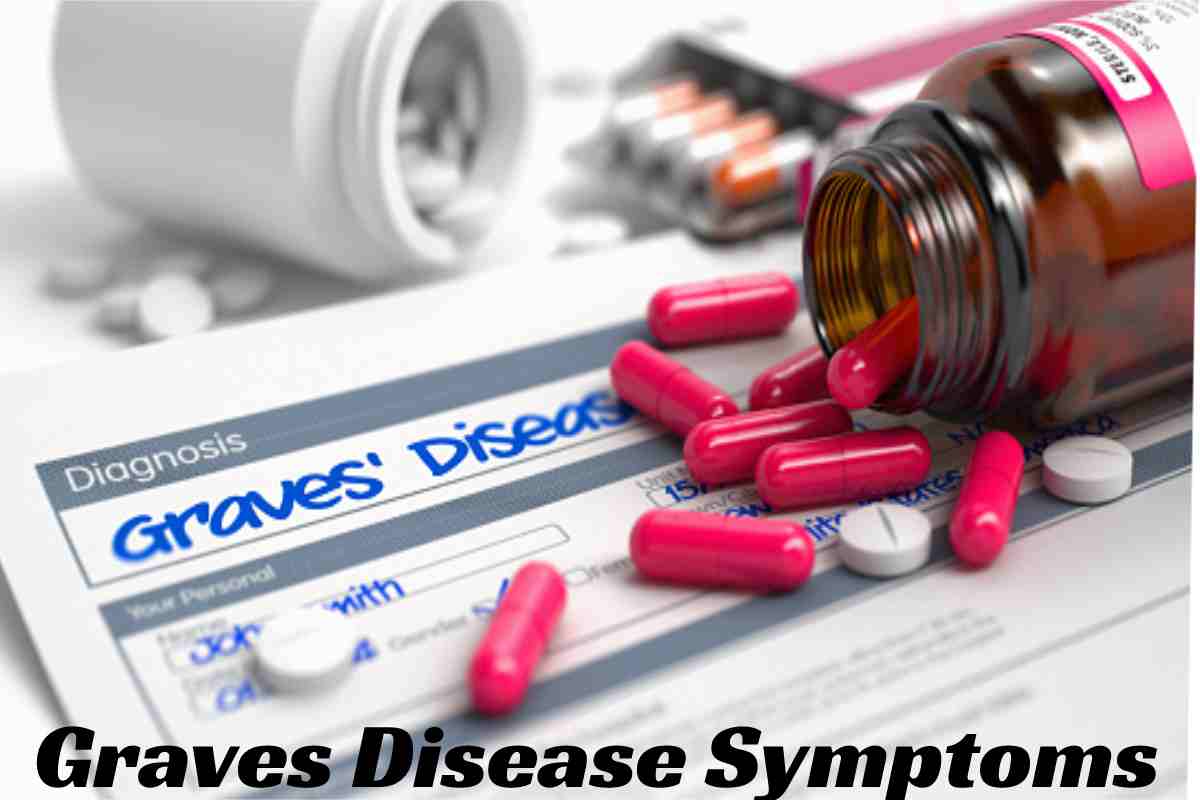Table of Contents
Graves’ Disease Definition
Graves Disease Symptoms: Graves’ disease leftovers are an autoimmune illness that causes the thyroid to grow overactivity — working harder than necessary. It leftovers one of the most significant communal thyroid problems and the leading source of hyperthyroidism, an ailment in which the thyroid gland harvests too many hormones. Its leftovers are called after the man who first branded it in the original 19th century, Sir Robert Graves.
The thyroid gland is a minor, butterfly-shaped gland in the front of your neck that proclaims hormones that benefit and control your metabolism. When you have Graves’ disease, your hardy system doses your thyroid—causation it to overproduce these hormones, leading to many problems in unlike parts of your body. It naturally touches people between 30 and 50 years old and is more shared in women.
Once The Disorder Has Remained Correctly Diagnosed,
It is comparatively easy to treat. In some cases, Graves’ disease goes into a discount or vanishes entirely after several months or years. However, if left untreated, it can lead to severe complications, with death.
Causes Of Graves’ Disease
Grave’s disease. Graves’ disease leftovers an autoimmune disease in which the thyroid the whole thing more than essential (hyperthyroidism). Some patients develop thyroid eye disease in which the eye muscles and tissues swell, causing the eyes to swell out of their sockets (exophthalmos). Hormones concealed by the thyroid gland control metabolism or the rate at which the body changes food into energy. Metabolism is directly connected to the number of hormones circulating in the bloodstream. If, for some aim, the thyroid secretor conceals too many of these hormones, the body’s metabolism hurries up, leading to a fast heartbeat, sweating, tremors, and weight loss.
Normally,
The thyroid gets its manufacturing orders from another chemical called thyroid-stimulating hormone (TSH), accessible by the pituitary gland in the brain. However, in Graves’ disease, a fault of the body’s immune system announcements abnormal antibodies that act like TSH. Advised by these false signals to crop, the thyroid hormone factories work energetically and overproduce.
It’s unclear precisely why the immune system starts creating these pesky antibodies. Inheritance and other constructions seem to play a role. Studies show, for example, that if an undistinguishable twin develops Graves’ disease, there is a 20% chance that the other twin will also develop it. In addition, women are more likely than men to develop the disease. Smokers who grow Graves’ disease remain more likely to have eye problems than nonsmokers who have it. No sole gene causes Graves’ disease. It remains believed to be triggered by equal genetics and environmental issues.
Symptoms Of Graves Disease
The most shared symptoms of Graves’ remain symptoms of thyrotoxicosis, including:
- Anxiety or irritability
- Tired or weak muscles
- shaking in your hands
- Frequent bowel movements or diarrhea
- Difficulty to sleep
- Increased sensitivity to heat or increased sweating
- unintentional weight loss
- An enlarged thyroid (also called a goiter)
- Fast or irregular heartbeat
- Changes in your period for women
- Erectile dysfunction in men.
- Loss of sexual desire (low libido)
- Complications of Graves’ disease
Eye Complications
A small fraction of all Graves patients will develop a condition called thyroid eye disease, in which the muscles and tissues of the eyes swell. This can cause exophthalmos (the eyeballs bulge out of their sockets) and remains considered a hallmark of Graves’ disease, although it is rare. But having this complication has nothing to do with the severity of Graves’ disease. It is unclear whether such eye complications stem from Graves’ disease or an entirely separate but closely related disorder. If you have developed thyroid eye disease, your eyes may feel pain and feel dry and annoyed. In addition, protruding eyeballs are prone to excessive tearing and redness, partly because the eyelids can’t protect them.
In severe cases of exophthalmos, which remain rare, the swollen eye muscles can put enormous pressure on the optic nerve, possibly leading to partial blindness. Eye muscles debilitated by long periods of inflammation can lose their ability.

